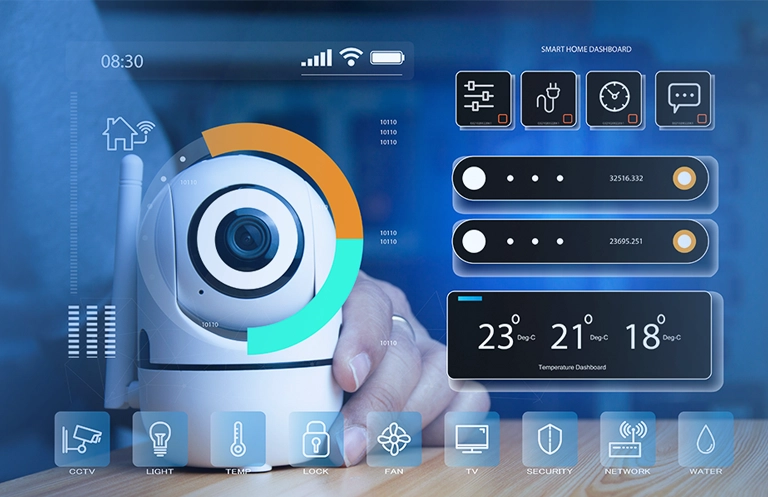With intensifying security threats, there is a serious focus on ‘Security and Surveillance’ to be an essential part of all smart city solutions. Today, security SI projects cover varied domains, including Federal Agencies & Government Projects, Metros, City Surveillance, Commercial Buildings Security (Malls/Retails and other), Traffic Surveillance, and many more. Hence, Video Management has become an crucial part of any integrated security solution .
This increased emphasis on ‘integrated security’ has placed those system integrators in a sweet spot, who understand the nitty-gritties of various pieces of the security solutions and the technologies associated with the same. Having an ecosystem in-place with vendors for video solutions, access controls, and other security devices manufacturers help them win large scale integrated security projects.
Typical challenges faced by System Integrators in the ‘Integrated Security’ space are:
Standing out as a true ‘System Integrator’ and not just another ‘OEM System Installer’
It is of utmost importance for system integrators to understand the technicalities of the solution, as they involve right from co-defining the functional and technical scope with the customer to later working with multiple vendors, to materialize the solution in the most optimal manner sticking to the SLAs (Service Level Agreement). The real challenge crops up when it comes to implementing the interoperability between various systems a seamless integrated security solution. This is practically impossible without understanding the solution as a whole and the feasibility of customization of the individual pieces to build-up the jigsaw puzzle.
Specialization or Diversification?
Looking at the wide-spread industry application, it becomes important for system integrators to define and follow their forte.Each industry requires a unique approach when defining solutions best suited their use cases. The crux is to understand the customer’s business and hence their domain specific needs. This needs the system integrators to have industry experts & cosultants, closely working with the technical ‘subject matter experts’ to qualify the best vendors for each component of the solution . This has to be a very conscious business decision, whether to exist as a specialized system integrator catering to specific industry or diversify into multiple domains. For diversification, one needs a strong ecosystem of various VMS vendors, specialized in providing industry-specific solutions with a strong team of dedicated technical experts and project management practices to materialize the solution.
Striking the balance between Cost and Functionality
Restricting onself to delivering what is required is not the only duty of a system integrator but more importantly, they bring the value to the table by owning up the risks involved. The risks come from bringing in hardware, VMS, other security systems and the cloud connectivity components or business applications from different vendors and making it work as per the MSA (Master Service Agreement) with the client.
On the pricing front, each of the individual building blocks mentioned baove pieces come with different pricing models, and a system integrator is usually tasked to bid in the cost-plus models. The exact estimation of integration efforts and coming up with a reasonable yet profitable quotation is critical. The customer, at times, may ask for a fixed bid without piecemeal price break-up or may insist on a detailed pricing on each and every building block. In the latter case, system integrators need to figure out where lies the moolah (hardware/software/manufacturing/multi-year maintenance) and arrive at the most optimal financial models, while guarding themselves and the customer from pass-through risks. This is not a simple installer’s cup of tea but takes an expert ‘system integrator’.
All the above challenges, though seemingly distinct ones, can be tackled by building a strong value chain of Security solution and VMS providers.
An ideal VMS provider to system integrators
- Provides a fully functional and robust VMS that is easy to install & integrate with other systems (Access control and other connected systems in the setup) and support a large variety of hardware to make the job easier for the system integrators
- Understand business of the end customer and comes up with a customized solution and preferably some specific value-added services specific to their business
- Flexibility in the deployment models as well as modularity and scalability to cater to the dynamic needs of the end customer
- Is flexible in terms of financial and engagement models which comprehensively cover VMS installation, VMS customization, Allied services such as businesaas analytics and multi-year maintenance
- Empowers the end customer for future scalability and flexibility for adding/modifying functionalities on the fly, with the evolving business needs
Hence, finding the best VMS provider for an integrated security system integration projects is more-than-half the work done for ensuring success.
eInfochips understands these aspects of the business, has a strong expertise in designing solutions for security and surveillance companies and offers a micro-services based, multi-tenant and federated Video Management Software (VMS), integrated with ready to use Video Analytics cases specific for smart cities, retail, fleet management, governments, and commercial setups. eInfochips ensures success for the system integrators by not only providing a state-of-the-art scalable cloud based VMS, but also provide unique and compelling advantages such as flexible deployment, engagement, and commercial models making the life easy for system integrators.














